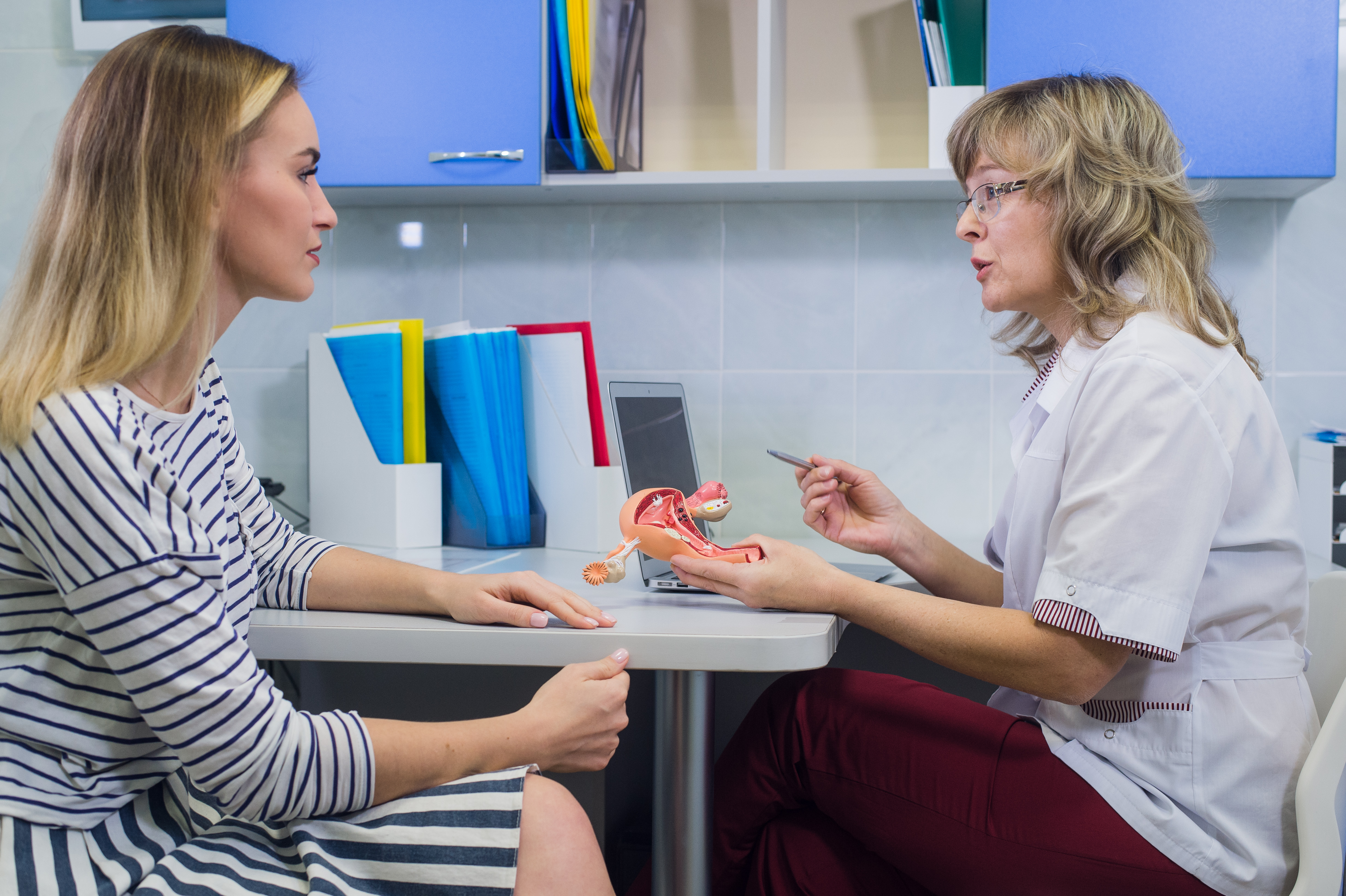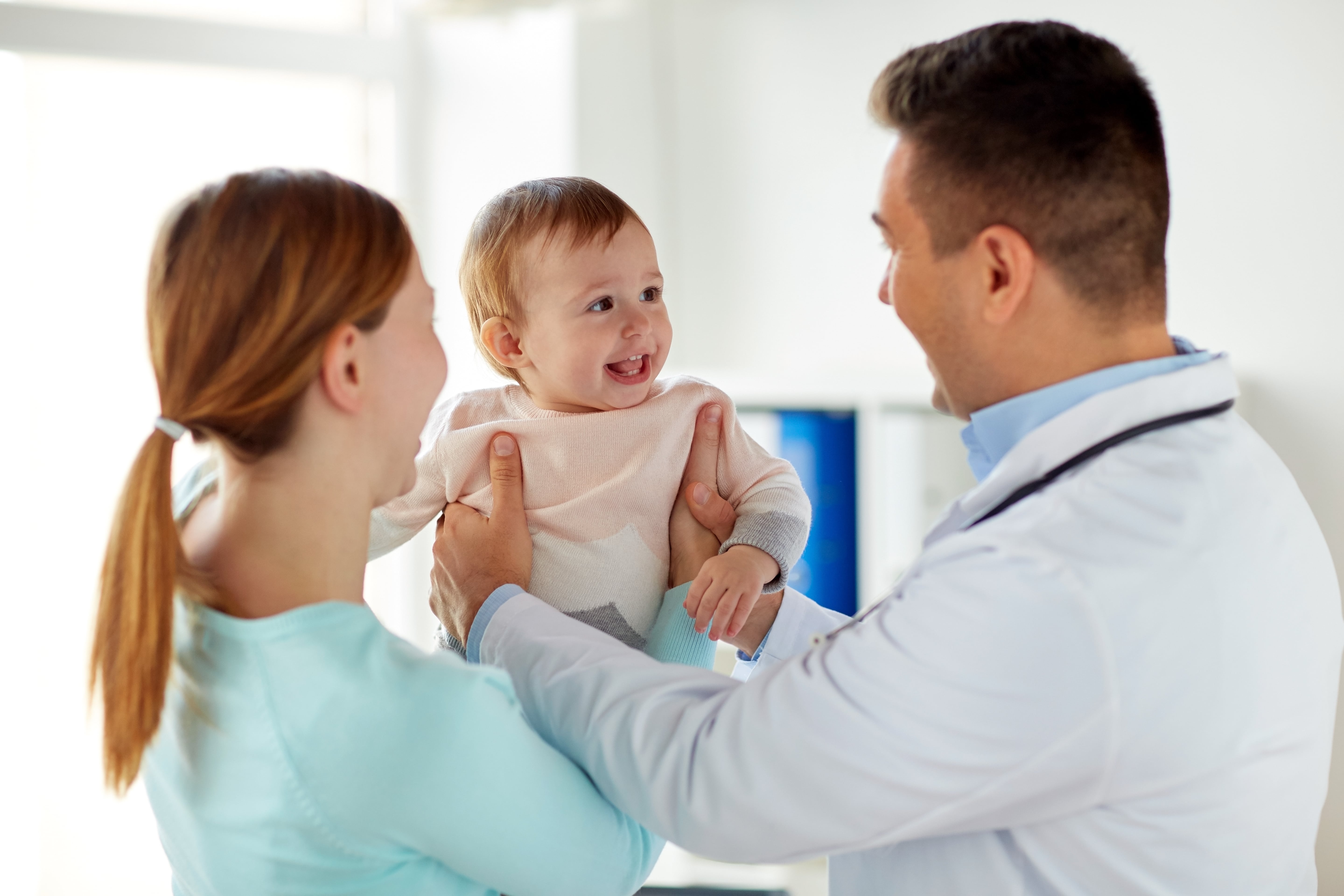How to Choose the Right Doctors for IVF Treatment

In vitro fertilization or IVF treatment can be a scary thought for couples who are having difficulty conceiving. It’s a complicated procedure that requires a combination of specialists from various medical backgrounds. Fertility clinics that offer IVF need to have the necessary medical specialists including specialists from gynecology, endocrinology, embryology, urology, psychology, and surgery. A clinic that does not have the right specialists present could prove to be unsafe and result in unsuccessful treatment.
The IVF Treatment Team and What They Do
Before you make any type of commitment, research various facilities, know your spending limits, and ask which fertility treatment tests you will need to have done beforehand. When researching good IVF center, you want to check to make sure treatments include care from the following specialists.
Geneticist. An examination by a geneticist to assess possible genetic disorders like thalassemia in patients that can be passed down do fetus. It also helps identify and prevent complications during pregnancy.
Reproductive Endocrinologist. The endocrinologist will monitor changes in hormones during the treatment cycle.
Reproductive Surgeon. A reproductive surgeon will be needed for surgical corrections such as obstructions in the fallopian tubes, endometriosis. and urinary tract disorders.
Urologist. A urologist will be needed in case there are obstructions in the male’s urinary tract.
Embryologist. An embryologist specializes in preserving viable embryos after fertilization. Their expertise is in freezing unused embryos and ensuring their safety and viability.
Immunologist. Should there be complications during implantation, and immunologist may be needed to handle immune-related issues.
Andrologist. Andrologists specialize in monitoring male hormones and sperm quality. The andrologist prepare sperm for the final fusion with the ova.
Gynecologist. The gynecologist treats any basic care related to the woman’s body.
Psychologist. Fertility treatments can be incredibly stressful on all parties involved. Patients often experience mental and emotional exhaustion throughout the IVF process.
These infertility doctors work in tandem to create ensure a successful pregnancy. All IVF doctors will hold a medical degree as well as an abundance of experience in their particular field. For a successful IVF treatment, providing care is a team effort among specialists. It’s imperative in order for patients to have an emotionally and physically rewarding treatment.
Because IVF is often a last resort for those seeking to have a child, an opportunity to take advantage of vulnerable patients by fake IVF doctors is rising. That’s why it’s important to make sure you research infertility doctors near me and research thoroughly.
A good IVF doctor will walk you through the entire process, have discussions and help you plan out the smallest details in order to increase your chances of a viable pregnancy. If you’re in Illinois, then you’ve likely heard about the amazing care IVF Center Chicago provides to patients. If you have any questions, do not hesitate to call or visit. Whether you choose us or another fertility clinic, make sure you check the success rates of facility. We can answer all your fertility and IVF questions so that you will be able to make the best decision for you and your family.
What Causes Infertility in Men and Women?
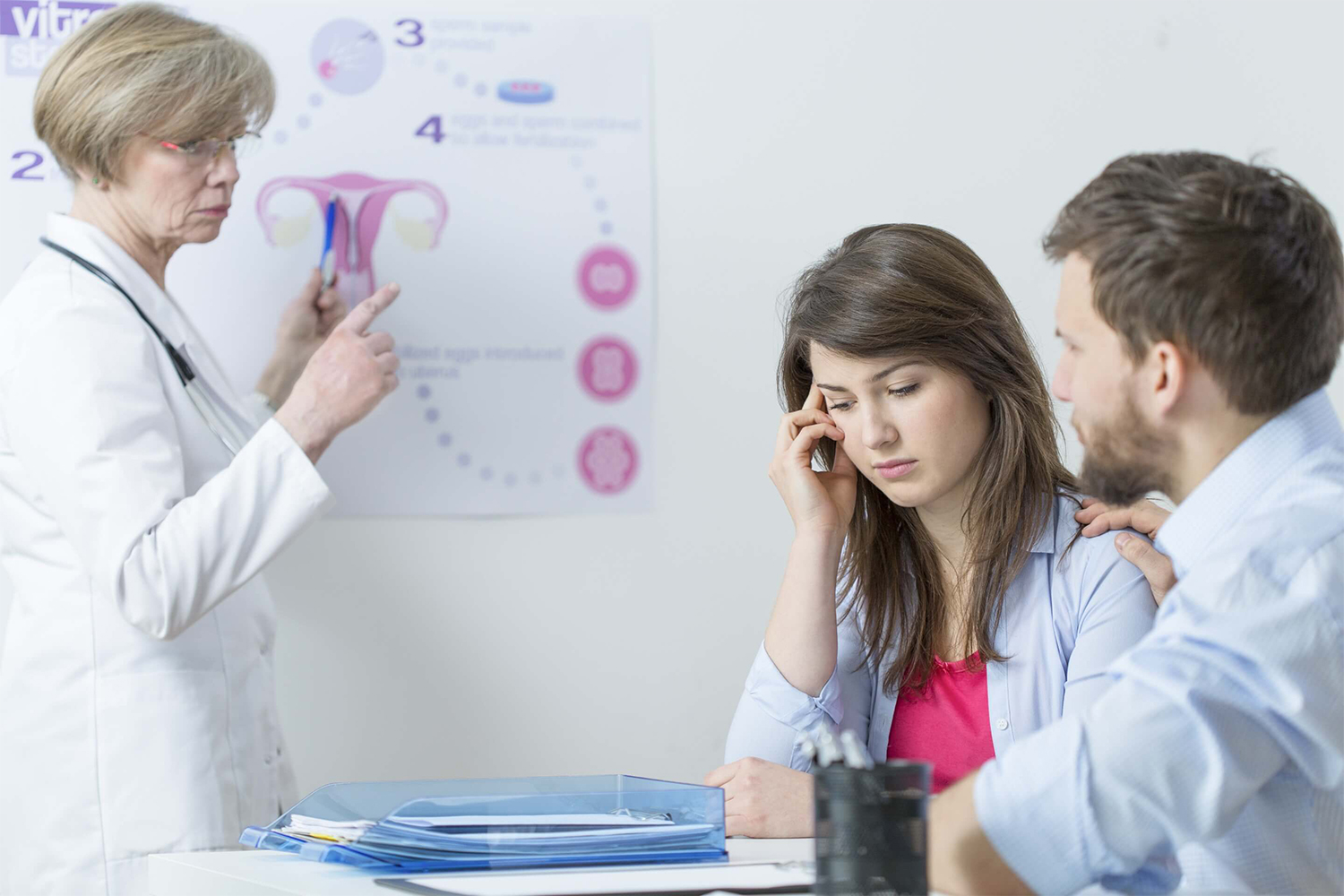
The mere word infertility can strike fear into men and women who are trying to conceive. Though infertility can affect both men and women, it’s often associated with women. Because women are the carriers of fetuses, may feel extra pressure to become pregnant when she and her partner are trying to conceive.
But their bodies may not be the cause of their inability to get pregnant. Men can also suffer from infertility issues. When seeking fertility treatment, it’s important to understand what infertility is before exploring options. The Advanced IVF Institute in Chicago seeks to help patients understand what could be causing their fertility issues.
What causes infertility?
According to The Mayo Clinic, “10% to 15% of couples in the U.S. are infertile.” There is no one cause behind infertility. And what causes infertility in women is not the same as what may cause infertility in men.
Infertility in Men
Male infertility affects roughly 7% of men and accounts for 40-50% of all infertility cases. Causes of male infertility include:
- Abnormal sperm production or function
Abnormal sperm production or function could be caused by undescended testicles, genetic deficiencies, health issues and disorders like diabetes, or infections such as chlamydia, gonorrhea, mumps or HIV. Having enlarged veins in the testes (varicocele) also can affect the quality of sperm. - Difficulty with the delivery of sperm
There could be a number of factors that interfere with the delivery of sperm including, sexual problems like premature ejaculation. Some genetic diseases like cystic fibrosis could disrupt sperm delivery. Then, there are structural problems, like a blockage in one or both of the testicles. Damage or injury to the reproductive organs can also create difficult passage of sperm. - Overexposure to certain environmental factors
Exposure or overexposure to harmful chemicals like pesticides, radiation, phthalates, lead, and dioxin can disrupt sperm production. Other chemicals and habitual actions that could disrupt sperm production include smoking cigarettes, marijuana, using anabolic steroids, taking medications that treat bacterial infections, high blood pressure and depression. Environmental disruptors like frequent exposure to saunas or hot tubs could also negatively impact sperm production. - Damage related to cancer and its treatment
Chemotherapy and other chemical treatments for cancer can negatively impact sperm production.
Infertility in Women
Like men, infertility in women could be caused by one or even a combination of factors. Some factors that contribute to female infertility include:
- Ovulation disorders
Hormonal disorders that can greatly impair the release of eggs from the ovaries include Polycystic Ovary Syndrome or PCOS, Prolactinoma, Hyperthyroidism, or Hypothyroidism. Other issues that could affect the release of eggs include over-exercising, eating disorders, and tumors. - Uterine or cervical abnormalities
Abnormalities in the uterus or cervix can cause infertility by blocking the fallopian tubes or stopping a fertilized egg from implantation in the uterus.
Fallopian tube damage or blockage
Damage to the fallopian tube is often caused by inflammation or salpingitis, usually from pelvic inflammatory disease from untreated sexually transmitted infections, endometriosis, or adhesions.
- Endometriosis
Endometriosis is when endometrial tissue grows outside of the uterus.
Early menopause or primary ovarian insufficiency
Early menopause occurs when the menstrual cycle ends, and the ovaries stop functioning. There are many variables that are associated with early menopause, including immune system disease, Turner Syndrome and other genetic disorders, and chemotherapy or radiation treatment.
- Pelvic adhesions
Pelvic adhesions are pockets of scar tissue that attach to organs, usually forming after pelvic infection, appendicitis, endometriosis or abdominal or pelvic surgery. - Cancer and cancer treatment
Reproductive cancers often interfere with female fertility. The radiation and chemotherapy to treat those cancers may affect fertility as well.
If you and your partner are trying to conceive but haven’t been successful, contact Dr. Charles Miller & Associates. You can also google infertility doctors near me so that you can get the assistance you need.
Can acupuncture help with infertility?
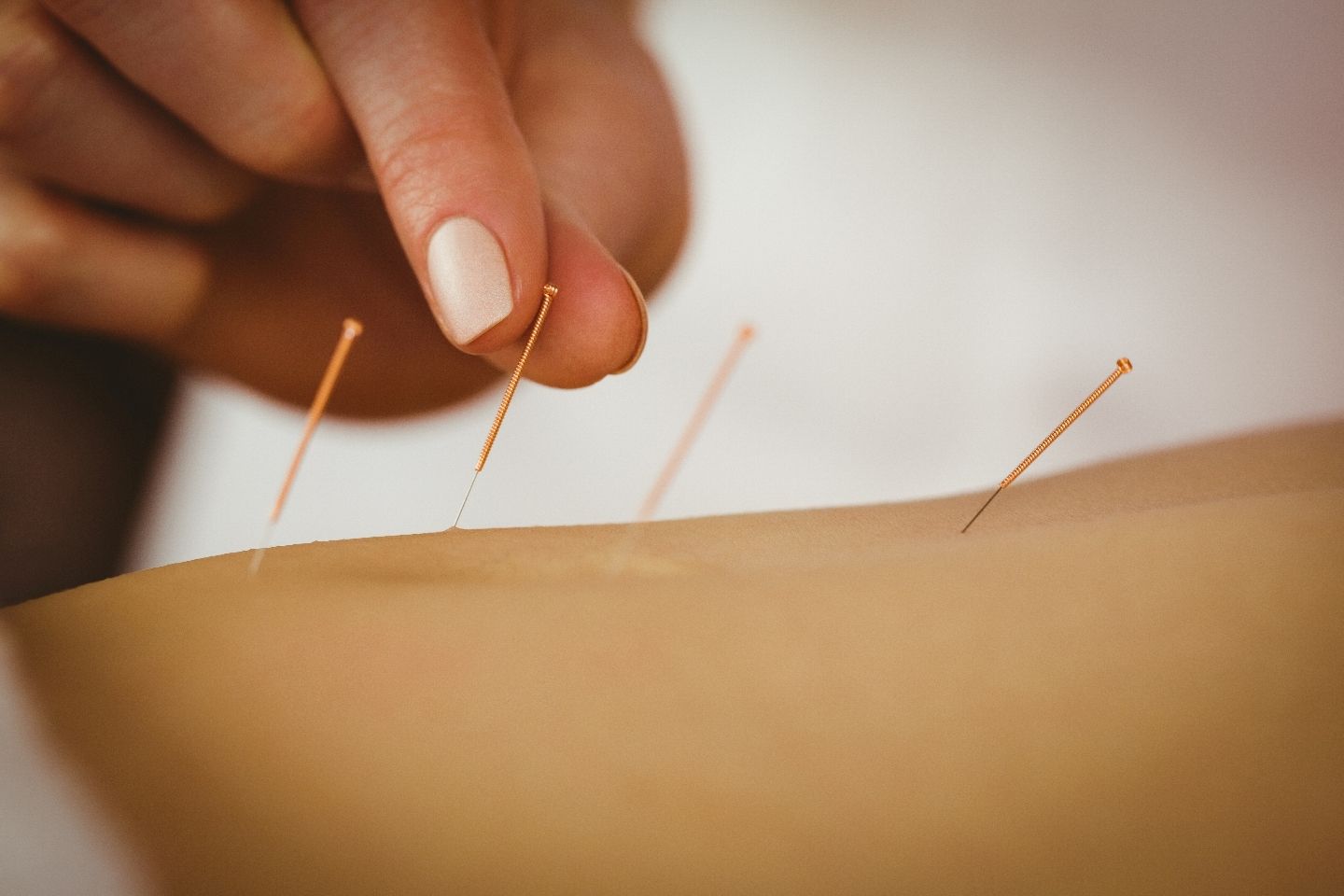
There are many studies and anecdotes of individuals—men and women—who have overcome infertility from acupuncture. However, because both infertility and the body’s response to acupuncture can vary widely from person to person, it’s difficult to ascertain whether acupuncture will have a direct effect on someone’s fertility.
Acupuncture is an ancient Chinese medicine practice of using fine needles, placed in various acupressure points, to help relieve and open up energy channels, known as meridians, that are blocked in the body to restore its flow. Chinese medicine says that this blockage is sometimes the underlying cause of many chronic diseases and pain, including infertility. In modern medicine, acupuncture has played a complementary role to help elicit biochemical responses.
Visiting an acupuncturist is sometimes done over several weeks, once or twice a week. The patient lies on a table while the acupuncturist performs the procedure. It is designed to be a calming, meditative procedure, which fertility doctors will often say is important for treating infertility as well. Finding some calm during an otherwise emotional and stressful time period is crucial to someone’s well-being and fertility treatment.
There are many acupuncture practices in Chicago and near fertility centers in Naperville, Illinois, as well, who can offer the method to individuals experiencing infertility. Contact your Chicago fertility specialist to see if there are any acupuncturists they may recommend to help you through your infertility and during your fertility treatments. Make sure that the practices do not interfere with your fertility treatments as well. In some cases, insurance may even cover your acupuncture treatments as well.
Handling Infertility and Depression
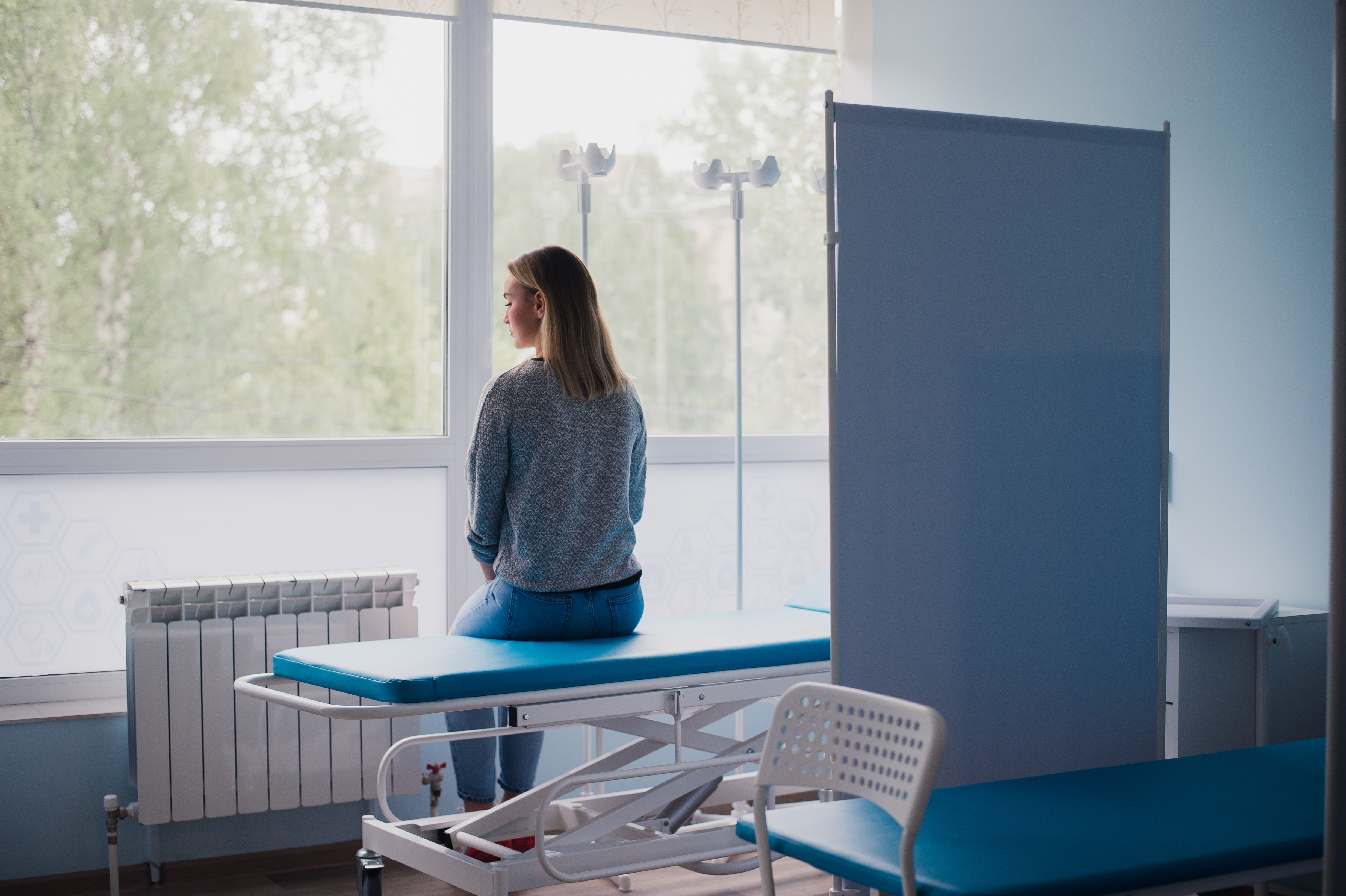
Living with depression presents a major challenge to daily life. Living with depression while dealing with infertility can be incredibly overwhelming. Luckily, treatment is available to help you handle issues of infertility and depression so that you can plan for your family in a healthy way.
According to the World Health Organization, 300 million people around the world are living with depression. Of that 300 million, 16.2 million adults in the United States have had a major depressive episode within the last year. Additionally, 1 in 8 couples have trouble conceiving or sustaining pregnancy.
Both infertility and depression used to be topics people were too ashamed to discuss. Now, people are more willing to discuss depression and infertility issues openly. The Gynecologic Surgery Institute can provide the information you need to help you stay healthy, mentally and physically, during fertility treatments.
For many couples, a diagnosis of infertility and the subsequent treatment can bring on chronic stress and may eventually lead to depression or increasing existing feelings of depression. Research has even shown that women experiencing infertility is comparable to the stress and emotional pain of women facing chronic pain, cancer, and HIV/AIDS.
Depression is more likely to surface in people facing infertility who have a history of depression or does not have a support system to help them through the stress of infertility treatment.
Depression is not the same as just being sad
Sadness and depression are not one in the same. Since we associate depression with persistent sadness, its primary symptom, many people do not know how to tell the difference. Too often, people do not seek help for depression because they think they are just sad.
Sadness is a natural emotion triggered by hurtful, disappointing, or other challenging events in our lives. When we have adjusted to the circumstances or gotten over the event, the disappointment, the sadness dissipates.
Depression, on the other hand, is abnormal sadness—a mental illness or mood disorder, that affects how we think, perceive, and behave. When someone is depressed, they are sad about everything. Most depressive episodes do not need an event to trigger sadness.
Psychology Today says to be diagnosed with depression, someone must have at least five of the following symptoms continuously:
- A depressed or irritable mood most of the time.
- A loss or decrease of pleasure or interest in most activities, including ones that had been interesting or pleasurable previously.
- Significant changes in weight or appetite.
- Disturbances in falling asleep or sleeping too much.
- Feeling slowed down in your movements or restless most days.
- Feeling tired, sluggish, and having low energy most days.
- Having feelings of worthless or excessive guilt most days.
- Experiencing problems with thinking, focus, concentration, creativity and the ability to make decisions most days.
- Having thoughts of dying or suicide.
While there is mixed evidence as to whether depression causes infertility, there may be links between depression and infertility due to hormonal imbalances and certain medications used to treat depression and/or other mood disorders. Visit your local IVF specialist in Chicago to help you understand how hormonal imbalances can affect fertility treatment.
One study found that male partners with active major depression and not using antidepressants were less likely to achieve conception. But with women with major depression, not using antidepressants, the likelihood of pregnancy increased slightly. Also, non-SSRI antidepressants were associated with increased risk of miscarriage in the first trimester.
If you begin to experience symptoms of depression during infertility treatments, talk to your fertility specialist in Chicago.
5 Questions to Ask Your Doctor About Infertility
Getting pregnant is a challenge for many couples trying to conceive. While there’s around a 25 to 30 percent chance per cycle that a woman will get pregnant in her 20s or 30s, that percentage decreases with age. Seeking professional help about infertility can be a stressful experience. However, if you and your partner are struggling with conception your seeing a fertility specialist can give you the best advice for your individual needs.
What’s the first line of treatment for infertility?
After your doctor diagnoses you with infertility or low chances of fertility, the first line of treatment for infertility is usually medication. Specific medications are engineered to increase the likelihood of pregnancy.
How does my lifestyle affect my fertility?
While fertility chances can weaken with age, your health conditions can help improve or lower your chances for conception. Illnesses that affect the thyroid can affect women’s fertility. Cancer, poor nutrition, and infections can affect the reproductive chances of both men and women, just as smoking, drinking alcohol and come medications. Being in good health condition prior to conception ideally helps increase chances of pregnancy.
Will surgery be involved in infertility treatment?
If your infertility involves issues with your reproductive organs, your doctor may opt to perform female fertility surgery. Surgery could be used to fix blocked or fallopian tubes so that an egg can be released and fertilized successfully.
What are the risks involved with infertility treatments?
Some fertility medications may have side effects. Fertility surgery, like most surgeries, can run the risk of infection. Fallopian surgery can increase the risk for ectopic pregnancy, a serious condition where the fertilized egg and later fetus grows outside of the uterus.
What are my chances of success with fertility treatment?
Some estimates put infertility treatment between an 85 to 90 percent success rate. Of course, it depends on the type of treatment and other variables like the patient’s health and age. For example, doctors could estimate that Intrauterine insemination or IUI (artificial insemination) could have a 20 percent chance for success while an embryo donation could have a 50 percent chance for success. Your doctor will be sure to give you a better idea of your chances of success with different treatments based on your individual needs.
Beginning your journey into fertility treatment can be overwhelming, feel complicated, and scary. Before selecting a fertility clinic, make sure you research fertility specialist near me to research infertility specialists in your area. A well-established fertility clinic will usually be more than accommodating and welcome questions about their specialists and discuss any concerns you may have. Your doctor will be able to provide options and offer you realistic advice. The right fertility specialist should be able to provide easy-to-understand information so that you are well prepared to make the best, informed decisions about growing your family.
Books and Movies That Tackle Fertility Issues
When you’re experiencing infertility, it may seem as if nobody understands what you’re going through. And while friends and even family may be very sympathetic and supportive, it can sometimes feel very lonely.
It’s incredibly important to build a strong support network around you of family and friends, even if they don’t quite understand it. At the same time, you can also find support groups in Chicago of similar women experiencing infertility. Given the size of this town, it’s not uncommon to meet other women who may be seeing a fertility specialist in Chicago or the suburbs (like at an IVF clinic in Naperville, for example) and receiving fertility treatments, possibly even at the same fertility clinic.
Infertility and undergoing fertility treatments can be exhausting, which is why finding entertainment is another good way to make yourself feel better. This list of books and movies are a great way to escape your own infertility briefly, and also relate well to the characters who may be experiencing the same thing as you.
Fiction novels about infertility
Where I Lost Her – by T. Greenwood. A New York power couple’s marriage is left fraught after years of failed infertility treatments and failed adoption, and the wife begins to find ways to mend her broken heart through the search for a lost girl in Vermont.
The Snow Child – by Eowyn Ivey. A childless older couple in Alaska happen upon a girl in the woods, seemingly made from snow, and changes their lives.
Then Came You – by Jennifer Weiner. Four separate women, two who donate eggs, one experiencing infertility who receives the eggs, and a fourth who is a stepdaughter, are thrown together in a scenario that examines what being a mother is about.
Movies about infertility
Private Life, starring Paul Giamatti and Kathryn Hahn. A stark, poignant look at what infertility means to a middle-aged couple.
What to Expect when you’re Expecting, starring Anna Kendrick, Elizabeth Banks and Jennifer Lopez. Women experience different types of fertility struggles: miscarriage, difficulty, adoption.
Maybe Baby, starring Hugh Laurie and Joely Richardson. A perfect London couple’s perfect marriage erupts when infertility enters the picture and display to what extent normally rational people would do to have a baby.
One More Shot, documentary by Maya Grobel Moskin and Noah Moskin. This film follows the husband-and-wife documentary team as they face the challenges in overcoming their infertility.
Vegas Baby, documentary by Amanda Micheli. She follows several aspiring parents with fertility problems who enter a contest from a Las Vegas doctor. The winner gets a free round of IVF treatment.
IVF as a Solution to Infertility
In vitro fertilization, or IVF, is a method of fertility treatment where eggs are removed from your ovaries and fertilized in a lab to grow into embryos. The embryos are then transferred back to your uterus to complete the pregnancy.
IVF is a viable method for people who have a difficult time conceiving naturally or for other reasons in which traditional conception cannot happen. You may be one of these people in Chicago who thinks IVF is a possible option for you, or who has been told by a fertility doctor in Chicago to consider IVF.
The good news is there are many IVF centers here in Chicago, Illinois and in the outskirts. Many of these fertility centers of Illinois can look over your medical history and your partner’s, test you both, and give you several choices regarding pregnancy. These include IVF, IUI (intrauterine insemination), egg donation, sperm donation, surrogacy, and more.
How do I find an infertility doctor near me?
The best place to start when inquiring about IVF is with your own ob/gyn. He or she will have plenty of knowledge when it comes to the best fertility doctors in Chicago or which doctors in Chicago specialize in IVF. You can also seek out the opinions of other women who are currently undergoing IVF in Chicago. These women can be found in Facebook support groups and other fertility groups, such as Shine Fertility.
How do I know if I’m a good candidate for IVF?
Once you decide on a fertility center in Illinois, the fertility doctor will examine you and your history, test you and your partner, and then make that recommendation. In some cases, your situation may be related to a condition that requires a visit to the gynecologic surgery institute. These can sometimes fix the problem and then no further treatment is required. In other cases, you might undergo a surgical procedure, and then discuss IVF to make pregnancy viable.
I have a busy schedule. Is it better to find an infertility specialist near me or one that’s better in reputation?
That all depends on your situation and your flexibility. Some of the best fertility doctors in Chicago may not be at all near your work or home. Because infertility treatments can be stressful, it may be best to decide what will reduce your stress – a doctor you feel most comfortable with or ease of access to the fertility center. Whether you work in downtown Chicago but prefer a fertility institute in Naperville, or vice versa, you’ll need to figure out what’s the best approach for you. You can also try one practice but if it becomes too difficult, then try another.
Most important is that you have a supportive network around you during this time. You can find other women going through the same treatments to talk to, and also make sure your family and close friends understand and are available for you as well.
IVF Frequently Asked Questions
What is IVF? It stands for In Vitro Fertilization, but it means a whole lot more for many women and their partners who are going through it.
Scientifically, IVF is an assisted reproductive technology in which eggs are extracted and manually fertilized with sperm in a laboratory setting. The resulting embryo is then transferred to the uterus.
IVF has created millions of successful births to couples who opted to use the technology to become pregnant. It is an option for women and men who have had trouble conceiving naturally, including older women who statistically have a more difficult time becoming pregnant. It is also a viable option for single women who are interested in becoming pregnant as well.
How does IVF work?
In most cases, women are first given fertility drugs to help stimulate egg production so that several eggs can be extracted at once to boost the chance of success. During this time, your fertility specialist will take blood samples to test hormone levels and examine your ovaries as well.
Once the eggs are ready for retrieval, the woman undergoes minor surgery to have them removed. The procedure involves the use of a needle in the pelvic cavity to remove the eggs. After retrieval, the eggs are placed in a laboratory dish along with semen from a partner or donor. In some cases, particularly in situations where fertilization chances are lower, a sperm is directly injected into an egg to encourage fertilization. Once the eggs are successfully fertilized and monitored for cell division, they are then transferred into the woman’s uterus using a catheter. This usually takes place between three to five days after fertilization.
Are there risks with IVF?
IVF has its risks the same as any other medical procedures. Some include nausea and vomiting, shortness of breath, severe stomach pain, infection to the bladder and bowel, and risk of carrying multiple pregnancies, which has its own risks.
People who choose to go through IVF should consider counseling with an IVF specialist first to decide whether it’s the right path for you. While IVF often comes with a rewarding end – a successful pregnancy – it can also have many emotional and physical, not to mention financial tolls.
How do I find an IVF clinic?
There are many doctors who specialize in infertility and IVF. Talk with your gynecologist about doctors they are familiar with and whose reputations are highly rated. Meet with a few specialists to see what their approach is and whether they seem like a good fit. While it’s tempting to go with a place that’s known to be friendly with good bedside manners, which are important, sometimes it’s best to choose a place with a high success rate because, in the end, that’s what you’re aiming for. Most importantly, when going through IVF, it’s important to have a strong support system in place. Involve your partner and your family through the process, and seek out friends or a group who understand what’s happening as well.
Fertility Treatment FAQ Answered
Fertility Treatment
What is a fertility treatment? It’s a method of helping people who are having trouble conceiving and can range greatly from surgery to fertility drugs. Fertility treatments are available to women and men and their effectiveness vary by each individual’s needs.
When should I consider a fertility treatment?
Many men and women suffer from various fertility issues that will affect their ability to become pregnant right away. If either of you are aware of any issues, you should speak with a fertility specialist. If you have also had trouble conceiving for a while, you should consider fertility treatment to help.
What type of fertility treatments are there?
There are many types of fertility treatments available, and as technology improves, so do women’s chances of becoming pregnant. Depending on your situation, your fertility treatment may be any of these: a routine surgical procedure to correct an anatomical issue, fertility drugs to encourage your ovaries to release eggs, in vitro fertilization (IVF), intrauterine insemination (IUI), embryo transfers, donor eggs or sperm, and surrogacy. The options are many, thereby allowing doctors to help you find the fertility treatment that’s most appropriate for you.
How much will fertility treatment cost?
Fertility treatments range in costs and sometimes are covered by insurance, depending on the procedure and the state in which you live. Some companies now are offering fertility treatments and egg freezing as part of the benefits package to encourage a more family-friendly, supportive work environment.
How difficult are fertility treatments?
Each situation differs from individual to individual. For some, the fertility treatments work right away, for others, it may take some time and patience. The most important thing with regard to fertility treatment is to make sure you have a strong support network. Talk to your partner or family about what you’re doing and ask for their support. Find a support group of other people who are going through the same time and feel free to speak openly about your feelings. Fertility treatments are extremely common, and there is no need to feel alone in the process. Just because you are seeking a fertility treatment doesn’t mean you are less able-bodied than anyone else to have a baby or can’t be a good parent.
Fertility Treatments: Understanding Your Options
If you’re having trouble conceiving, there are plenty of fertility treatments you can try. If you’ve been trying to get pregnant for several months without any luck, you should contact a fertility specialist. The specialist will do a thorough examination and collect your medical history to determine what’s causing your fertility issues.
How do I know if I need fertility treatments?
When you visit the fertility specialist, he or she will test you and your partner to see what the cause for the problems are. Sometimes the treatments will be just for you, or just your partner, and sometimes it’s a combination to boost the chances between the two of you.
What type of fertility treatments are there?
There are many options for fertility treatments. There are fertility drugs which regulate hormones and trigger multiple egg releases each month. Surgery is another option which can correct any gynecological problems, such as removing fibroids, remove tissue caused by endometriosis, or treat PCOS (polycystic ovarian syndrome). In vitro fertilization (IVF) is another popular method in which eggs are removed from your ovaries, fertilized with sperm, and then the resulting embryos are transferred to your uterus. There is also intrauterine insemination (IUI), the use of donor eggs or sperm, and surrogacy. Because of the plentiful options, you and your doctor can work together to find the fertility treatments that are best for you.
How much do fertility treatments cost?
Fertility treatments range in price depending on the procedure and whether they are covered by insurance. In some states, fertility treatments are covered by insurance. Consult with your doctor to see what’s covered by your insurance and what you can afford to spend.
Will fertility treatments work for me?
The outcome for each individual varies. For some, it will work immediately, and for others it might take some time. Make sure you talk with your doctor and nurses about any concerns or questions you have,
What should I do while undergoing fertility treatments?
It’s important to build a strong support network of friends and other people who have undergone fertility treatments as well. You’ll find Facebook groups and other online networks where you can ask questions and listen to stories of others’ questions and struggles. Make sure you have supportive friends and family nearby too. It’s easy to feel alone during this time, but having that strong network will help you through some of the tougher moments.

